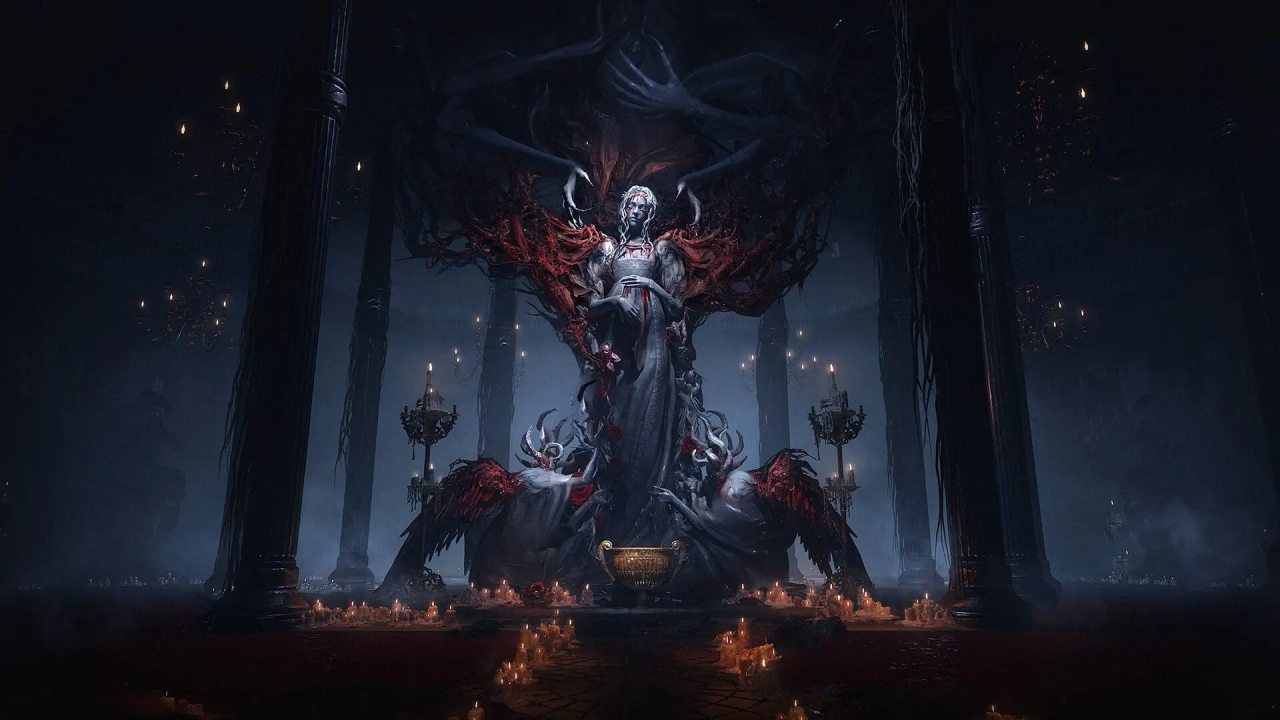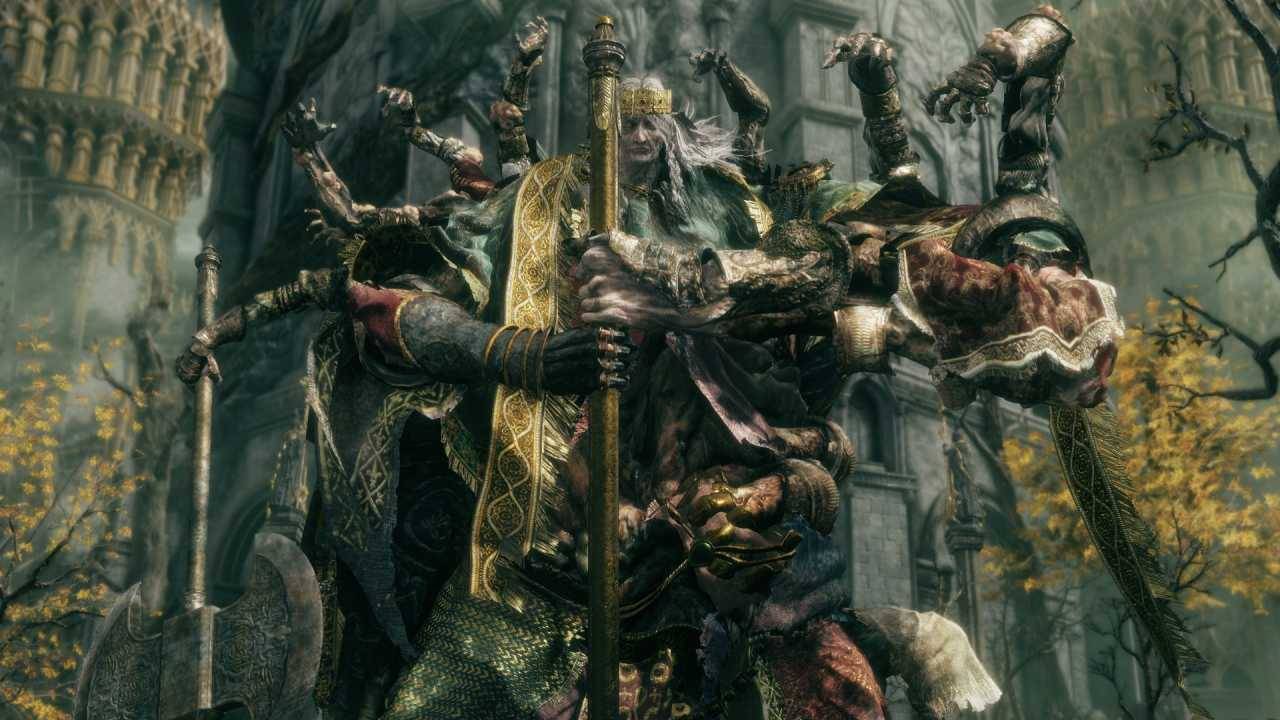Does Elden Ring Have a Narrative?
There are those who want to believe that games like Elden Ring, and other From Software games, have no narrative, but that is simply incorrect.
by LCLupus on Dec 07, 2022
There have been a number of comments and arguments lately about From Software games. These kinds of arguments crop up all the time, such as the endless “should there be difficulty modes” debate whenever a From Software game releases, but the current debate is about narrative, and whether Elden Ring, and by extension other From Software games, have a narrative at all.
It would be best to first explain why some people want to claim that From Software games don’t have narratives, and why the current debate started. Well, the current debate starting is the easier explanation so let’s explain that very quickly: Elden Ring is one of the five games nominated for Best Narrative at The Game Awards for 2022, and it appears alongside God of War Ragnarök, A Plague Tale: Requiem, Horizon Forbidden West, and Immortality. All of these games have a more traditional style in their narrative delivery.

When it comes to the reason some claim that Elden Ring and its From Software siblings do not have narratives is because these games and their worlds are presented very differently to most. You are given next to no information when you start the game, and if you don’t want to pay attention to the narrative, you can just ignore it. It essentially gives you, as the player, the ability to choose your own level of involvement.
These games present themselves as worlds of decay, and they are more interested in providing environmental storytelling alongside lore snippets that help to explain why the world is the way it is rather than doing more traditional exposition. It’s an intentionally vague and ambiguous narrative, and that makes sense because, before the start of each game, your character was a nobody in that world. You were not one of the great gods or lords of the world, you were just some person. You, as a character, do not matter.
Let’s step away from Elden Ring and its friends for a while to instead talk about the narrative itself and some other forms of narrative, and many of these other forms will be in other mediums because narrative experimentation exists across mediums and is not relegated to gaming alone. Although, gaming is capable of providing some of the most interesting narrative experimentation.
So, firstly, non-linearity and ambiguity have existed in narrative art for a very long time, so presenting a story in which you either don’t get the full story or the story is told from a limited perspective is something that has been going for a very long time. A major narratologist, which is an academic who specializes in narratives, Gérard Genette created a comprehensive system of narrative analysis from the late sixties to the early eighties. His work was published in English as Narrative Discourse and Narrative Discourse Revisited.
These two books provided, along with some other things, a system for understanding narrative time alterations in terms of the order, frequency, and duration of narrative events. Each of these concepts could be done in a variety of ways. You could swap the order of events around as much as you wanted, you could have events recur or happen only once, and events could be stretched, compressed, or paused to varying degrees. A narrative does not need to be linear. In addition, his concept of focalization explains the way in which the perspective of the speaking subject in the narrative does not necessarily know what is and what is not happening. We are presented with a certain amount of information, and while some narratives give us everything, others make us work for it, or they just don’t give it to us at all.
Genette himself was specifically analyzing a book from the twenties when he was explaining these changes, and that book is the massive work translated into English as In Search of Lost Time by Marcel Proust. This is one of the great modernist texts, and a major inspiration on postmodernism.

And it is through a postmodern lens that we can understand texts that do not tell their stories the way we’re taught that stories have to unfold. You see, what you were taught in school about “correct narrative structure” and the Hero’s Journey, is actually only one way to create a narrative. It’s the most common way to do so, and it can even be found in From Software games, because you do start weak and cannot understand the world, and by the end you reach a climactic battle that culminates in the narrative’s conclusion. That’s still a typical narrative structure, but it isn’t the structure people have a problem with From Software games, so let’s look at those other narratives now.
Epistolary additions to otherwise ordinary works, which would be the addition of things like fictional letters, newspaper articles, and diary entries, is already “incorrect” in terms of traditional narrative form. These kinds of texts, unless they are specifically found by characters in the story, reflect a non-linear, external perspective from the characters that cannot be called part of ordinary narrative structure. This is effectively the addition of lore, which is what some people like to claim Elden Ring is. It’s just lore, no story. Well, if that’s true, then Dracula is not a narrative. It’s entirely made up of epistolary exposition.
There are also forms of interactive theatrical productions in which, instead of sitting and looking at a stage, the characters move around a building on their own and do their parts, but you can only follow one of them. Therefore, you do not receive the whole story. You only see the perspective of one character. You do not know the motivations, inner life, or the decisions of other characters. Is this not still a type of narrative?
What about the many absurdist pieces, probably most famously those by David Lynch? His movies often make no sense at all. Just watch one of his latest short films, What Did Jack Do? This short film sees Lynch’s characters interrogating a monkey with a superimposed human mouth. It doesn’t really make sense, but it’s still a narrative, and that narrative is even more vague and weird than anything you’d find in a From Software game.
Or what about a game like Journey? There’s no dialogue, the journey is entirely through events that affect the character’s body, and your interaction with other players gives you a unique story that no one else can ever have. Sometimes a character appears out of nowhere when you least expect it, sometimes you don’t meet anyone till the very end. There’s no rhyme or reason to it, but that doesn’t stop it from being a narrative. In fact, Journey was praised and critically acclaimed for how it made people feel, and if it presented players with narrative highs and lows without any traditional characterization, narrative, or even lore, then isn’t that a personal story, a personal narrative?
A game can have a narrative with or without lore. A game could tell its narrative through dialogue or without it. You don’t need to see every perspective. You don’t need motivations for characters. You are perfectly fine to say that you personally do not like that kind of narrative, but you cannot say that it is not a narrative. It is a narrative, and there are no real rules to a narrative. Trying to impose certain rules on narratives as a whole will always make them too reductive. It will never incorporate the full definition of what that thing is.

So, when it comes to Elden Ring, and From Software games in general, these games are going for a form of experimental storytelling that employs ambiguity and limited focalization. It’s probably closer to poetry than prose, and there are narrative poems. Ever heard of The Raven by Edgar Allen Poe or The Wasteland by T.S. Eliot? These poems are obscure and sometimes difficult to understand, The Wasteland more so than The Raven, but they still have a story to tell.
There is no such thing as something “not having a story.” You can even argue that many paintings have stories if they incorporate some kind of character within them. If you see Munch’s The Scream and you ever think to yourself: Why is that man screaming? Well, that’s a narrative. It doesn’t explain anything, and we get no dialogue or anything of the sort, but it is telling a story. When it comes to images, we often use the expression: a picture is worth a thousand words. If it has words, if it doesn’t have words; it’s still a narrative.
You’re allowed to have your personal tastes. Maybe Elden Ring’s narrative is boring to you, or you didn’t engage with it, but it has a story. You simply may not have appreciated it as one.
Justin van Huyssteen (@LC_Lupus)
Senior Editor, NoobFeed
Contributor, NoobFeed
Latest Articles
No Data.

